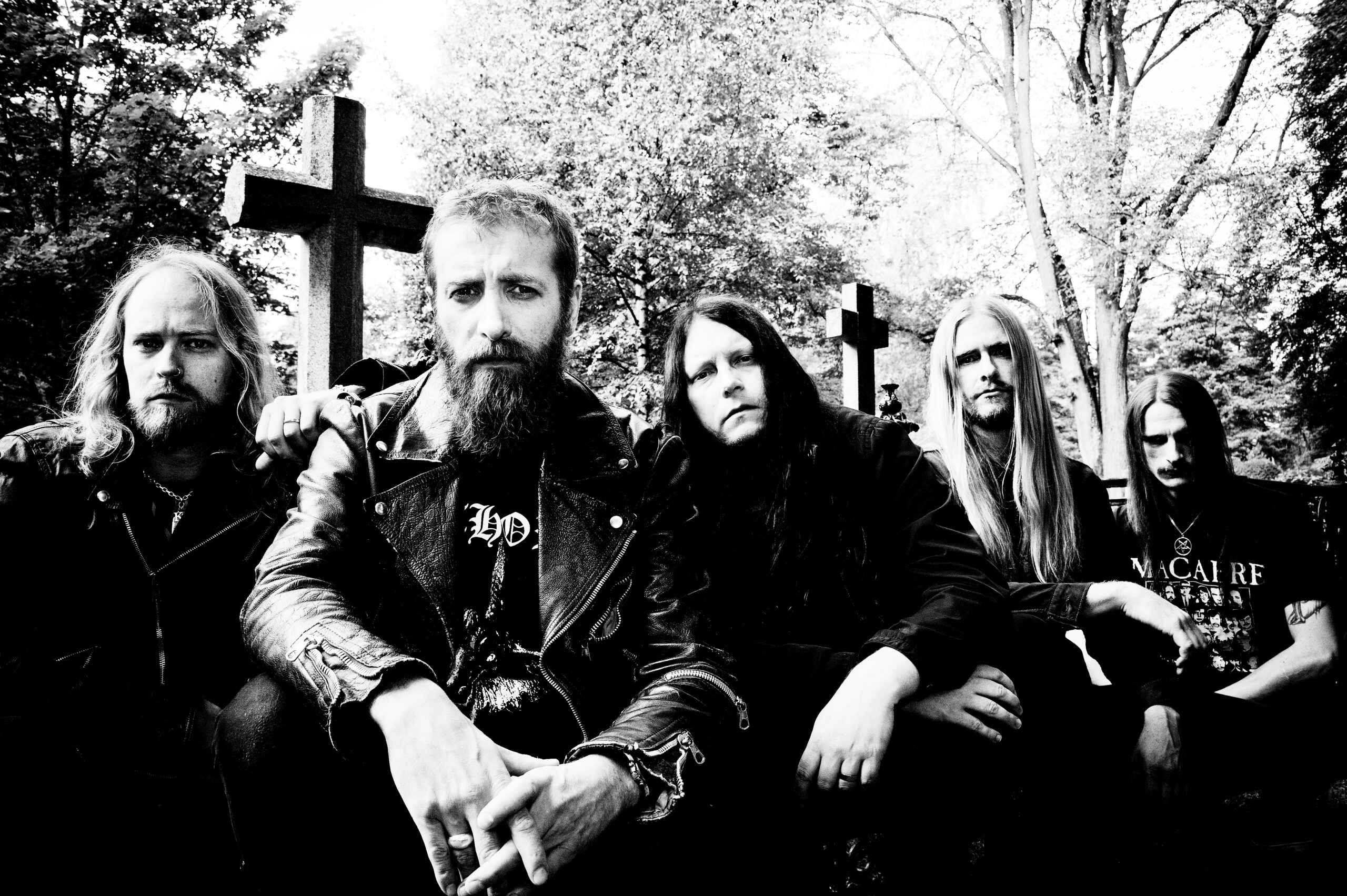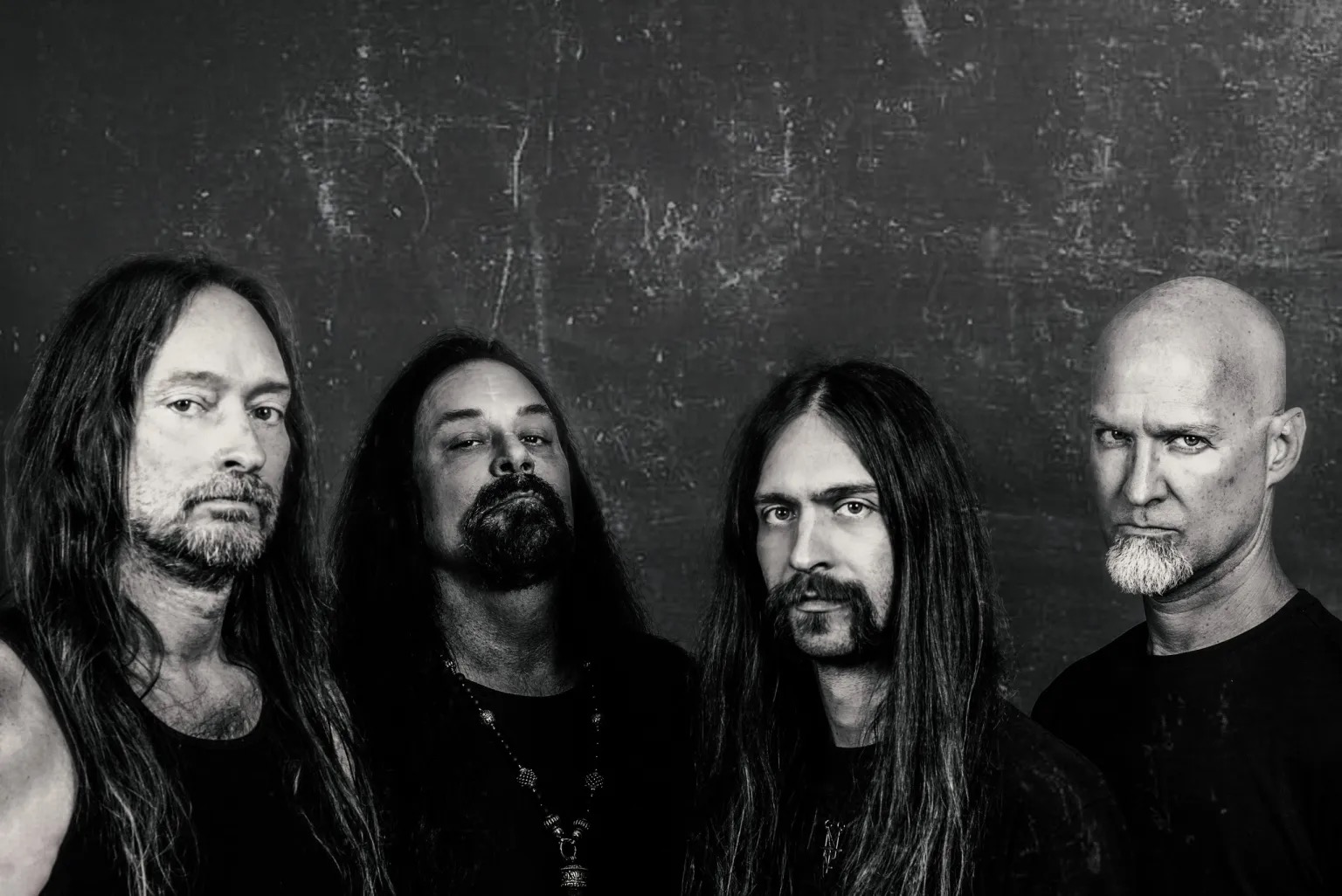
The problem of producing an album widely perceived to be a genre classic is that everything you subsequently release will be held up and found wanting. So Slipknot have found in every release that has followed Iowa (despite Vol III arguably being the superior release), although that may possibly change this time out. There’s no doubting that Slipknot is a vastly changed band from the 18-legged hate-machine that spewed forth people = shit, with line-up changes, internal tensions and personal tragedies all serving to create a sense that Slipknot will never truly be able to win against an idealised version of their past no matter how hard they try. It’s been five years since .5 The Grey Chapter (admittedly chickenfeed when compared to Tool or Guns ‘n’ Roses) and, as with all killer live bands, there remains a near insatiable appetite for new material, which only adds to the sense of expectation with which this release has been greeted. In response, the band holed up with Joe Barresi (Tool, Melvins, QOTSA) and Greg Fidelmen to produce the dark, brooding we are not your kind, a more experimental outing than the previous two releases and one of the band’s most adventurous offerings to date.
Opening with the now obligatory scene-setter, Slipknot lead into the album with the oddly disjointed Insert coin, a stuttering, ambient piece that wouldn’t sound out of place on a Fuck Buttons LP. It’s a bold stylistic choice and one that sets the scene for an album that consistently defies expectations. It leads into the gothic unsainted, an early single that is impressive even if, once you strip away the choral elements, you actually have a track that wouldn’t sound out of place on the band’s debut. Comparisons to the band’s early material continue with the dark-hearted birth of the cruel, a track that pairs clean vocals with a proto-industrial backdrop reminiscent of prosthetics, a stunning track from the debut that suggested a direction rarely explored subsequently. With Joe Barresi’s strikingly clean production rendering the band’s increasingly precision-driven assault with clarity and heft, birth of the cruel shows Slipknot stepping out of the comfort zone they entered on all hope is gone and finding a way to redefine themselves nearly twenty-five years into their career. Things keep getting stranger as the band explore ambient electronica on the short mantra death because of death, although things pep up considerably with the blistering Nero forte, a particularly vicious Slipknot assault built around a chrome-plated groove that will prove every bit as irresistible in the mosh pit as wait and bleed, Cory gabbling away over the clean vocals of the chorus in a convincingly unhinged display. A phased guitar leads into Critical darling, but that’s as far as any experimentation goes, the band choosing to plunge straight into a seething cauldron of old-school Slipknot metal instead. Sharp and incisive, it’s Slipknot in excelsis, although it takes a few twists and turns along the way to its breathless conclusion and it’s further evidence, as if any were needed, that Slipknot have refined much of that which has made them so enthralling over the years. Providing something of a mid-album break, A liar’s funeral adds strings and noise before emerging as a slow-burning acoustic piece that is arguably the band’s finest such excursion since Vermillion, the track eventually building to a fearsome climax.
Opening the album’s second half, Red flag veritably storms out of the gates, a full-blooded return to the days of Iowa complete with athletic rhythms and some gleefully twisted riffs. However, fans hoping for a return to more straight forward pastures will soon be disabused of the notion as the band offer up the instrumental segue, What’s next, a short, music-box-esque mood-piece that paves the way for the stunning Spiders, which proves to be one of Slipknot’s most adventurous tracks to date. With horror-movie piano and a hypnotic beat, spiders shows considerable depth and maturity and the light and shade only goes to give the heavier moments of the album greater weight in their delivery. This is especially the case on Orphan, a track that sounds like a mashup between Slipknot and Gojira, the band twisting their riffs into brutal, otherworldly shapes even whilst cramming in a typically addictive chorus. Offering up another sonic curveball, My Pain is a slow, subtle piece of ambient music that comes complete with a metronomic beat and eerie melody. It’s quite unlike anything Slipknot have done before, but it works and it provides an evocative prelude to the slow-burning Not long for this world, a track that builds up a considerable head of steam despite remaining centred around clean vocals. Arguably the closest to anything from all hope is gone, albeit more sympathetically produced, not long for this world has a strong command of dynamic and paves the way for album closer (and recent single) Solway Firth, which somehow draws together a number of the album’s sonic threads and weaves them into a seething heavy head-trip complete with odd-ball music-box elements and deft shifts in mood and atmosphere. It’s a compelling finale and it’s easy to understand why it was released as a single just prior to the album, paving the way for some of the record’s stranger excursions.
We are not your kind is an interesting album. On the one hand, the band are quite content to offer up singles that play up to the Slipknot paradigm – churning guitars, a mix of clean and harsh vocals, over-the-top production and a breakdown that is apt to send the mosh pit into a frenzy. On the other hand, they have pushed their sonic envelope even further on this album, drawing upon a variety of influences to offer up tracks such as the hypnotic spiders and segues such as death because of death. The result is an album that is the equal, in terms of experimentation, to Vol. III, providing plenty of killer live material but offering more to those who want the album experience than, say, all hope is gone. In my opinion, it is the darker, deeper cuts that will outlive the more obvious crowd pleasers – they’re there simply to draw in the fair-weather fans – and that the album as a whole will come to be regarded as one of the greater entries in Slipknot’s varied canon once its many elements have bedded in. Neither as immediate as Iowa, nor as polished as all hope is gone, we are not your kind is one of those albums that will have fans hotly debating which are the better tracks, but its strength is its diversity and a large part of its character resides in the fact that it has the ability to appeal across a spectrum (which might go some way to explaining its current, and deserved, position at number 1 in the UK charts). A grower, but a worthwhile one and a reminder that Slipknot’s continued position at the forefront of metal is cemented by their staunch refusal to compromise and their continued artistic growth. 9










Leave a Reply